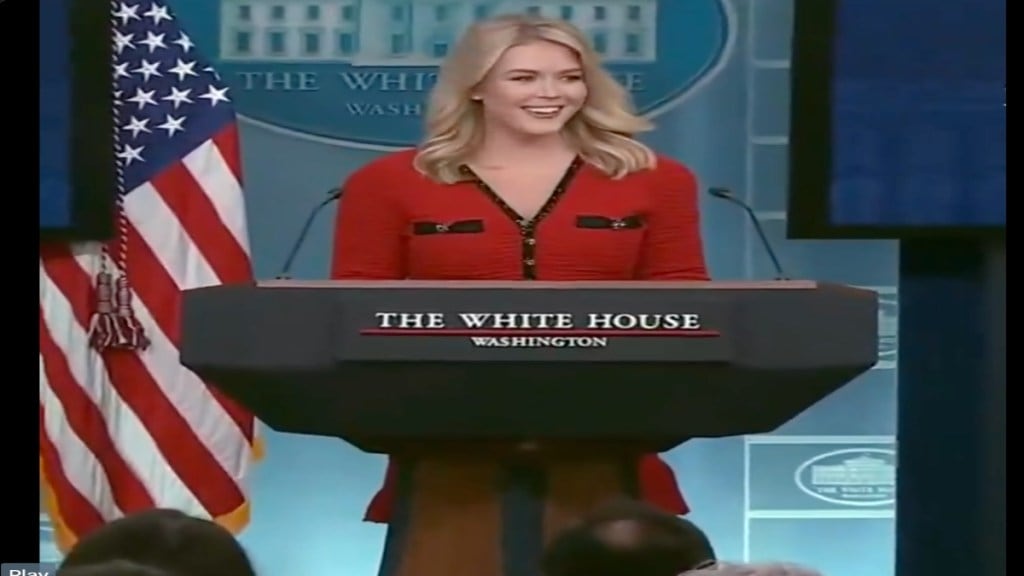As the US-China trade war escalates, social media has become an unexpected front in the ongoing conflict — with a fashion controversy involving White House press secretary Karoline Leavitt at the center of the latest online skirmish.
Karoline Leavitt’s dress sparks debate
Leavitt, during a recent White House briefing, was seen wearing a striking red and black lace dress that eagle-eyed social media users quickly linked to a design available on several Chinese e-commerce websites. While it remains unclear whether the dress was actually manufactured in China, the incident triggered a lively debate.
Some users pointed out the irony of Leavitt condemning Chinese trade practices while potentially donning a Chinese-made garment. “Criticizing China while wearing clothing made in China… Admit it! It’s hard to resist the allure of Made in China,” quipped one user on X.
😂❎Criticizing China while wearing clothing made in China…
— AL-fira 🇨🇳 (@UlyssesFinn) April 14, 2025
😌✅Admit it!
It's hard to resist the allure of Made in China. pic.twitter.com/NbyPDQ6Tyh
Was it really made in China?
According to one claim circulating online, the dress was from Self-Portrait, a London-based contemporary fashion label founded in 2013 by Malaysian-born designer Han Chong. However, the brand is reportedly headquartered in Shenzhen and owned by Chinese fashion conglomerate Ellassay, raising questions about its manufacturing origins.
The dress in question is from @_selfportrait_
— Spotben (@spotben) April 14, 2025
While some social media users alleged the dress was a Chinese counterfeit of the original design, others defended Leavitt, claiming she wore a French original. “Fake news. She’s wearing the French original while the advert shows a Chinese copy,” argued one post.
US-China trade
The US-China tariff war has intensified, with both countries slapping hefty duties on billions of dollars’ worth of goods. Last week, China raised tariffs on US imports to 125% in direct retaliation to President Trump’s move to impose reciprocal tariffs of 145%, further straining already tense trade relations.

